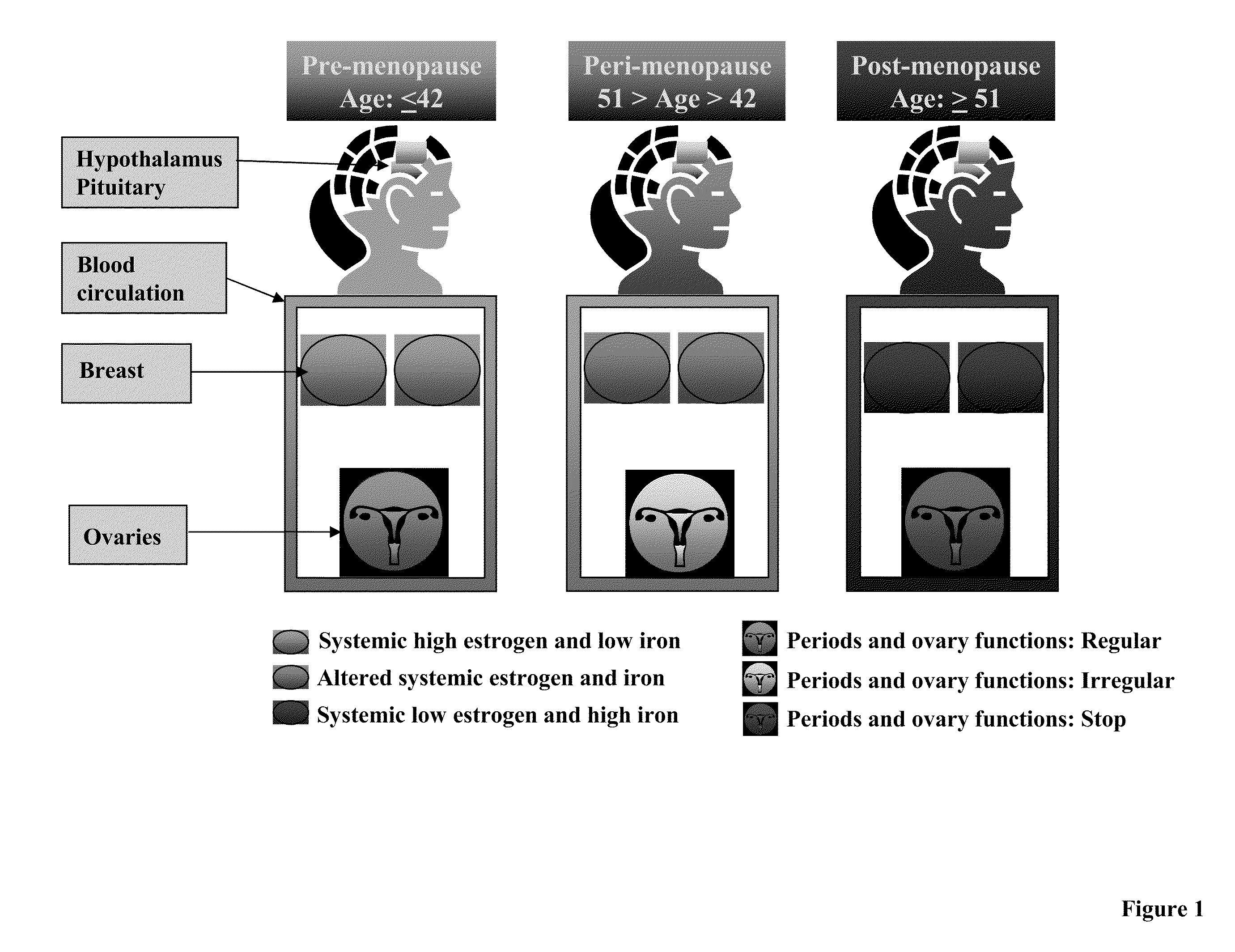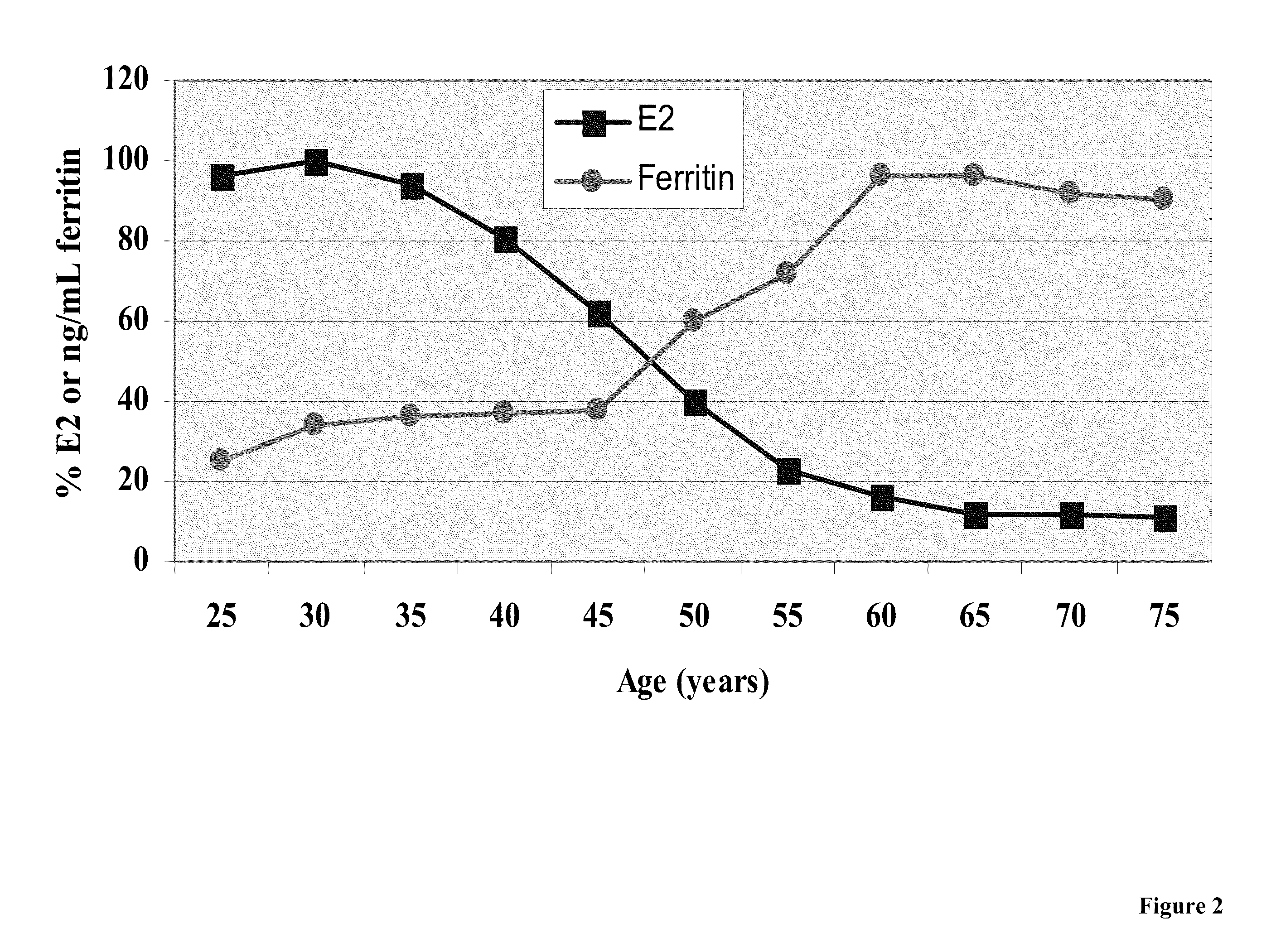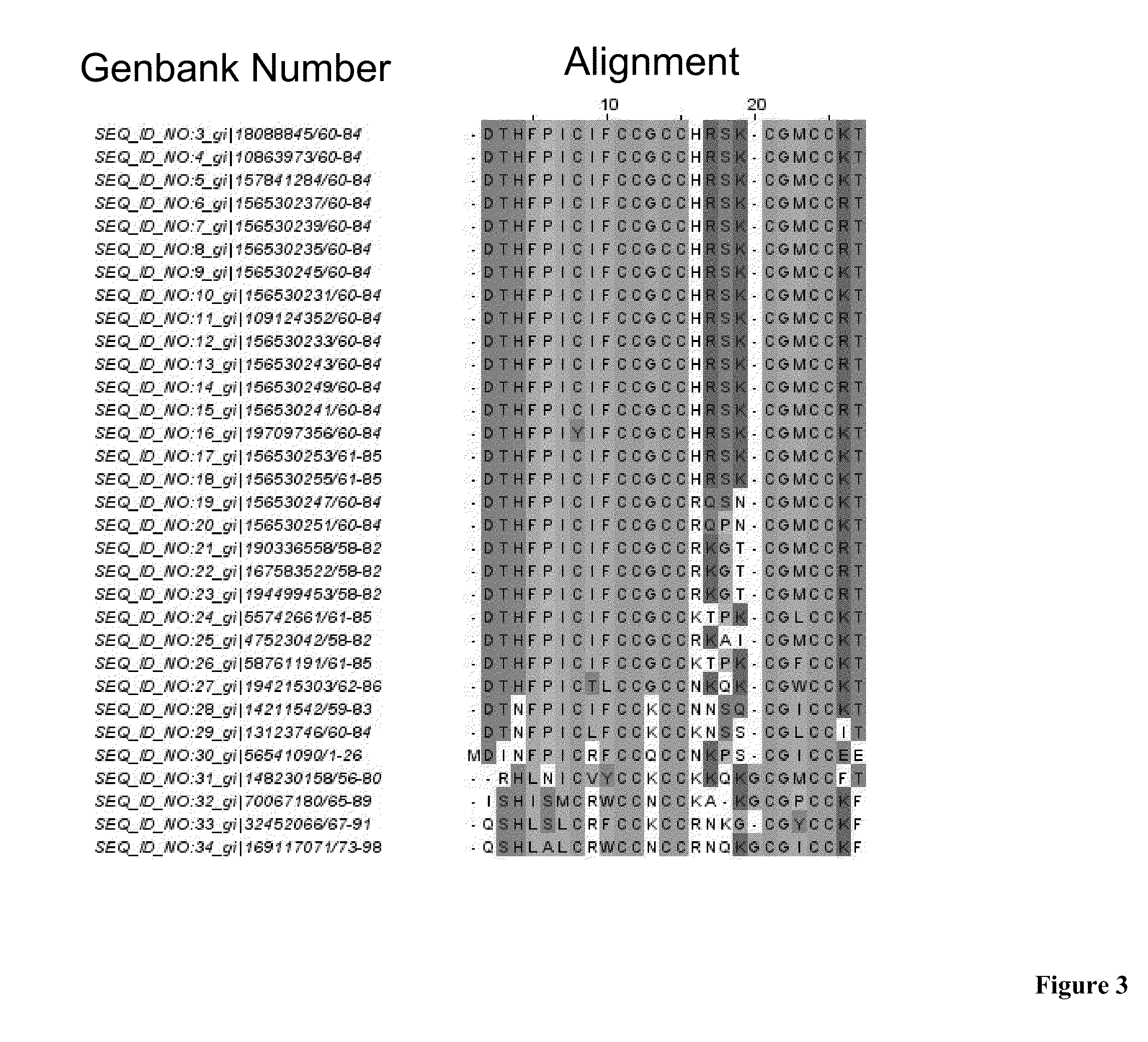Treatment of osteoporosis in peri- and post- menopausal women with hepcidin
- Summary
- Abstract
- Description
- Claims
- Application Information
AI Technical Summary
Benefits of technology
Problems solved by technology
Method used
Image
Examples
example 1
Cell Culture Models for Pre- and Post-Menopausal Conditions
[0091]Due to the deficit of appropriate animal models that recapitulate estrogen and iron conditions in vivo, and the inherent difficulty of eliminating confounding variables with study in human subjects, applicants developed two cell culture models to test whether increase in body iron contributes to menopausal symptoms and diseases (FIG. 4). The concentration of 17β-estradiol (E2) were set at levels equivalent to breast tissue levels under pre-menopausal conditions (Parl F. F., “Estrogens, Estrogen Receptor and Breast Cancer,”Oxford: IOS Press, (2000), which is hereby incorporated by reference in its entirety). Ferritin levels were equal to 10% serum, given that the physiological upper limit of serum ferritin is 200 ng / ml. Twenty ng / ml of ferritin was used in the culture media. Transferrin was added in its wholly unsaturated form (apo-transferrin), or its fully 100% iron saturated (holo-transferrin), at 5 μg / ml, to the pre...
example 2
Study on the Effect of Iron Levels on VEGF Formation
[0092]The choice of vascular endothelial growth factor (VEGF) as a target gene for this study is based on the facts that VEGF plays a role in bone formation and has been associated with a poor prognosis of breast cancer in young patients (Gasparini G., “Prognostic Value of Vascular Endothelial Growth Factor in Breast Cancer,”Oncologist (5 Suppl.) 1:37-44 (2000), which is hereby incorporated by reference in its entirety). The MCF-7 cells grown in conditions mimicking the pre-menopausal state, with high E2 and low Fe, produced high levels of VEGF following a 6 h exposure to hypoxic conditions. The increased VEGF levels persisted when culture conditions were shifted to normoxic conditions (FIG. 5). These same cells, grown in conditions mimicking the post-menopausal state, with low E2 and high Fe, yielded low levels of VEGF and were less responsive to hypoxic treatment. In the primary NHEK cell cultures, similar trends in VEGF formatio...
example 3
Study on Effects of an Increase in Iron Levels in Cell Cultures
[0094]It is well known that iron catalyzes Fenton reactions that lead to the formation of reactive oxygen species. To investigate whether increased iron levels after menopause contribute to development of breast cancer, skin aging, and osteoporosis, various cells were tested in in vitro systems. MCF-7 and NHEK cells grown in post-menopausal conditions of low E2 and high Fe, were more sensitive to oxidative damage (measured by lipid peroxidation) as compared to the same cells grown in pre-menopausal conditions of high E2 and low Fe (FIGS. 13 and 14). Initial starting levels of lipid peroxidation were high in MCF-7 and NHEK cells grown in conditions imitating post-menopause. Additionally, MCF-7 and NHEK cells grown in pre- but not post-menopausal conditions, were protected from H2O2—induced lipid peroxidation (10 μM H2O2 for 4 h). Addition of the fluorescent oxidant probe, 2′,7′dichlorodihydrofluorescin diacetate, to MCF-7...
PUM
| Property | Measurement | Unit |
|---|---|---|
| Bioavailability | aaaaa | aaaaa |
Abstract
Description
Claims
Application Information
 Login to View More
Login to View More - R&D
- Intellectual Property
- Life Sciences
- Materials
- Tech Scout
- Unparalleled Data Quality
- Higher Quality Content
- 60% Fewer Hallucinations
Browse by: Latest US Patents, China's latest patents, Technical Efficacy Thesaurus, Application Domain, Technology Topic, Popular Technical Reports.
© 2025 PatSnap. All rights reserved.Legal|Privacy policy|Modern Slavery Act Transparency Statement|Sitemap|About US| Contact US: help@patsnap.com



